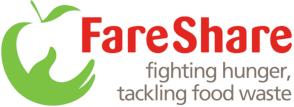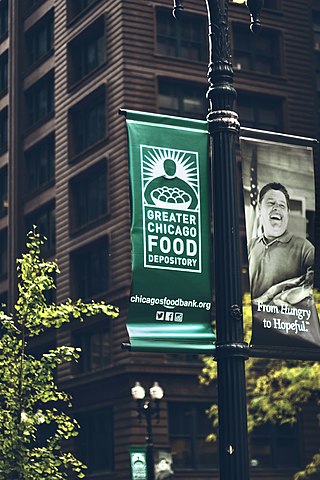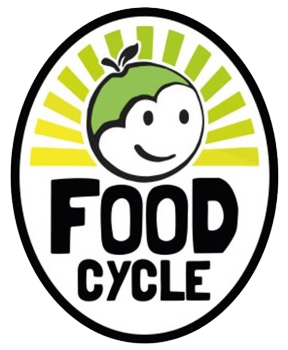
Chipotle Mexican Grill, Inc., often known simply as Chipotle, is an American multinational chain of fast casual restaurants specializing in bowls, tacos, and Mission burritos made to order in front of the customer. As of June 30, 2024, Chipotle has 3,500 restaurants. Its name derives from chipotle, the Nahuatl name for a smoked and dried jalapeño chili pepper.

Gleaning is the act of collecting leftover crops in the field after harvest. During harvest, there is food that is left or missed often because it does not meet store standards for uniformity. Sometimes, fields are left because they were not economically profitable to harvest. In modern times, gleaning is used to provide fresh foods to those in need. "Dumpster diving", when done for food or culinary ingredients, is seen as a similar form of food recovery. There are multiple organizations that support gleaning, including the Gleaning Network in the UK, and the National Gleaning Project in the United States. Both organizations have worked on national networks to connect modern gleaning and food recovery organizations.

Tyson Foods, Inc. is an American multinational corporation based in Springdale, Arkansas that operates in the food industry. The company is the world's second-largest processor and marketer of chicken, beef, and pork after JBS S.A. It is the largest meat company in America. It annually exports the largest percentage of beef out of the United States. Together with its subsidiaries, it operates major food brands, including Jimmy Dean, Hillshire Farm, Ball Park, Wright Brand, Aidells, and State Fair. Tyson Foods ranked No. 79 in the 2020 Fortune 500 list of the largest United States corporations by total revenue.

A food bank is a non-profit, charitable organization that distributes food to those who have difficulty purchasing enough to avoid hunger, usually through intermediaries like food pantries and soup kitchens. Some food banks distribute food directly with their food pantries.

Government cheese is processed cheese provided to welfare beneficiaries, Food Stamp recipients, and the elderly receiving Social Security in the United States, as well as to food banks and churches. This processed cheese was used in military kitchens during World War II and has been used in schools since the 1950s.

The Federal Surplus Commodities Corporation was one of the so-called alphabet agencies set up in the United States during the 1930s as part of President Franklin D. Roosevelt's New Deal. Created in 1933 as the Federal Surplus Relief Corporation, its name was changed by charter amendment on November 18, 1935. In 1937 its administration was placed within the United States Department of Agriculture. In 1940 it was combined with other USDA initiatives to form the Surplus Marketing Administration. It was abolished February 23, 1942, with the creation of the Agricultural Marketing Administration.

Food loss and waste is food that is not eaten. The causes of food waste or loss are numerous and occur throughout the food system, during production, processing, distribution, retail and food service sales, and consumption. Overall, about one-third of the world's food is thrown away. A similar amount is lost on top of that by feeding human-edible food to farm animals. A 2021 meta-analysis, that did not include food lost during production, by the United Nations Environment Programme found that food waste was a challenge in all countries at all levels of economic development. The analysis estimated that global food waste was 931 million tonnes of food waste across three sectors: 61 percent from households, 26 percent from food service and 13 percent from retail.

Food rescue, also called food recovery, food salvage or surplus food redistribution, is the practice of gleaning edible food that would otherwise go to waste from places such as farms, produce markets, grocery stores, restaurants, or dining facilities and distributing it to local emergency food programs.

FareShare is a British charity network established in 1994 that aims to relieve food poverty and reduce food waste in the United Kingdom. It does this by obtaining good-quality surplus food from the food industry that would otherwise have gone to waste and sending it to frontline charities and community groups across the UK.

The Greater Chicago Food Depository (GCFD) is a nonprofit organization that fights hunger throughout Cook County, Illinois. The GCFD distributes donated and purchased food through a network of 700 food pantries, soup kitchens, shelters and community programs, serving more than 800,000 adults and children every year. In fiscal year 2016, the GCFD distributed more than 70 million pounds of nonperishable food, produce, dairy products, and meat - the equivalent of more than 160,000 meals every day. Of the $96,883,955 spent in 2016, over 90% went to direct food distribution programs.

Leket Israel, The National Food Bank, a registered nonprofit Israel-based charity, is the leading food rescue organization in Israel, serving 330,000+ needy people weekly. Leket Israel rescues surplus agricultural produce and collects excess cooked meals for redistribution to the needy throughout Israel via its network of 200+ nonprofit organization (NPO) partners.
Philabundance is a non-profit food bank that serves the Philadelphia and Delaware Valley regions of Pennsylvania, United States. It is the largest such organization in the region. The organization stated goal is to end hunger in its communities.

FoodCycle is a charitable organization based in the United Kingdom that uses surplus food donated by supermarkets, shops and food banks to create vegetarian meals served at "free community restaurants".
Food Donation Connection (FDC), LLC headquartered in Knoxville, Tennessee, is a privately owned American company facilitating the donation process between restaurants/food service companies with surplus food and local social service agencies that distribute food to those in need. FDC's primary goal is to redirect prepared food that would otherwise be discarded towards feeding individuals facing hunger.
City Harvest is one of New York City's largest food rescue organizations. The organization collects food waste from restaurants, bakeries, and cafes.

Direct Action Everywhere (DxE) is an international grassroots network of animal rights activists founded in 2013 in the San Francisco Bay Area. DxE uses disruptive protests and non-violent direct action tactics, such as open rescue of animals from factory farms. Their intent is to build a movement that can eventually shift culture and change social and political institutions. DxE activists work to "put an end to the commodity status of animals."
Forgotten Harvest is a non-profit food rescue organization that collects food that would otherwise go to waste and delivers it free of charge to organizations feeding the hungry in Metro Detroit. In 2015, the nonprofit distributed more than 40 million pounds of food to more than 260 emergency food providers.
Felix Project is a United Kingdom charitable organization that saves surplus food from suppliers and redistributes it to charities. It has the dual aim to help reduce food surplus. The Waste & Resources Action Programme estimate that 10 million tonnes of food was thrown away in the UK in 2016 and help relieve food poverty

Olio is a mobile app for sharing by giving away, getting, borrowing or lending things in your community for free, aiming to reduce household and food waste. It does this by connecting neighbours with spare food or household items to others nearby who wish to pick up those items. The food must be edible; it can be raw or cooked, sealed or open. Non-food items often listed on Olio include books, clothes and furniture.

Nicholas Channing DiGiovanni is an American celebrity chef and influencer. DiGiovanni has over 40 million followers across his social media accounts.















